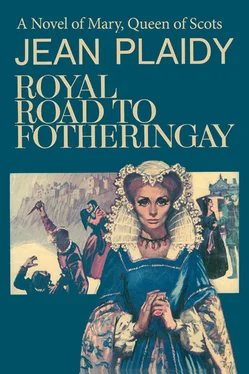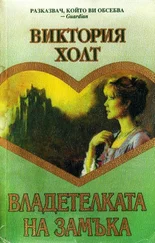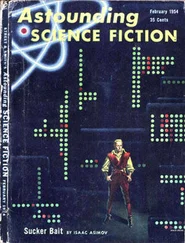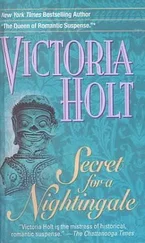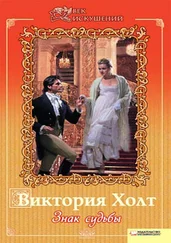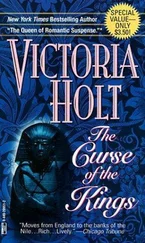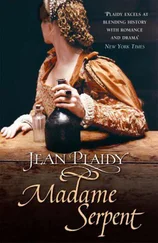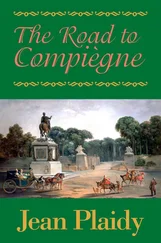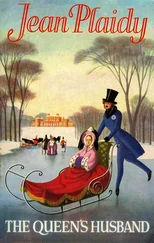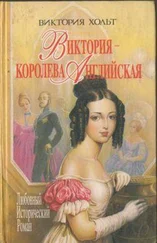Great events were about to burst on Scotland. Danger lay ahead. This was certain, for the Earl of Moray had left Scotland for France. He wanted no part in what was about to take place; he only wanted to partake of any good which might come within his reach through the ruin of the Queen, which more than ever seemed to him inevitable.
BOTHWELL was triumphant. He had been the chief instigator of Darn-ley’s murder and had gone unpunished. His men swaggered through the streets clanging their bucklers and broadswords. They commanded the fortress. All the nobles were invited—or ordered—to take supper with Lord Bothwell at the Ainslie Tavern.
At the closing of the recent parliament he had carried the Queen’s crown and scepter for her, back to the palace. Now there was not a man among them who dared refuse his invitation, while there was not one who was completely easy in his mind.
The revelers were feasting and making merry in the tavern when they were suddenly aware that the inn was surrounded by Bothwell’s men who stood on guard at the doors.
Bothwell called to his guests: “My very good lords, I thank you for your company, and now that we are all together and you know me for your friend, I would know you for mine. I have a bond here and I shall ask you, one and all, to sign it.”
Only the Earl of Eglinton, who was sitting near a window which was unguarded, managed to slip away unnoticed. The others were caught, intensely aware of the armed men surrounding the inn.
Morton cried: “What is this bond, friend Bothwell?”
“I will read it to you.” Bothwell stood on a table and taking the scroll in his hand read aloud:
James, Earl of Bothwell, being calumniated by malicious reports and divers placards as art and part in the heinous murder of the King, has submitted to an assize, and been found innocent of the same by certain noblemen his peers and others barons of good reputation. We, the undersigned, oblige ourselves upon our faith and honor and truth of our bodies, will answer to God, that in case hereafter any manner of person shall happen to insist farther on the slander and calumniation of the said heinous murder we and our kin, friends and assisters, shall take true and plain part with him to the defense and maintenance of his quarrel with our bodies, heritage and goods. And as Her Majesty is now destitute of husband, in which solitary state the Commonweal cannot permit Her Highness to continue, if it should please her so far to humble herself by taking one of her own born subjects and marry the said Earl, we will maintain and fortify him against all who would hinder and disturb the said marriage. Under our hands and seals at Edinburgh this day of April the 19th, in the year 1567.
The lords were dumbfounded.
They had expected to be asked to stand beside him in the event of his accusers’ rising against him, but this proposed marriage with the Queen was a feat of daring which they had not expected, even from Bothwell.
They hesitated. They were aware of the men-at-arms outside. The ferocity of Bothwell’s men was well known. And here they were, caught in a trap, befuddled with wine, heavy with feasting.
Morton stepped forward and said: “It is true that Lord Bothwell was acquitted and therefore every man should stand beside him should he be attacked on this matter of the King’s death. I will give my signature to the bond. It is true that Her Majesty is left a widow and that for the good of this country she should marry. If Her Majesty should humble herself and take one of her born subjects and that should be the Earl we see before us, then I say that will be for Scotland’s good and I hereby sign the bond.”
Bothwell was taken aback. He had not expected such ready support from Morton.
One by one the lords came up to sign the bond. They knew they must do it or die. Bothwell would have no mercy.
While they were uneasy, Bothwell was triumphant. But there was one who was far from displeased by what he had witnessed in the tavern; he was sly Morton.
By God! he swore to himself, little do these oafs know when they reluctantly sign this bond that they are doing just what they would wish to do; they are signing Bothwell’s death warrant. And he, poor fool, is too drunk with ambition to know it. Should he marry the Queen they are both doomed. Such a marriage would expose them to the world as Darnley’s murderers. The most foolish step they could take at this point is to marry.
He decided he would send word at once to Moray. It would not be long before James Stuart would return to Scotland to take the Regency.
THREE WAS at least one other who agreed with Morton. This was Elizabeth of England. She herself had been in a similar position seven years ago when her lovers wife had been found mysteriously dead at the bottom of a staircase, and Elizabeth with her lover Robert Dudley had appeared to be guilty of the murder. Mary had a shining example of royal behavior in such a delicate situation. To marry Bothwell now would be to destroy herself, as to have married Dudley at the time of Amy Robsart’s death would have destroyed Elizabeth.
The Queen of England had no love for her Scottish rival but she had a strong desire to preserve the dignity of royalty. She wrote warningly to Mary, but her warning meant nothing to the Queen of Scots. The Queen of England was governed by ambition; the Queen of Scots by her emotions which were now concentrated on the passion she felt for one man. Her hand was in that of her lover, and if he were dragging her down to destruction, he was with her and nothing else seemed of any real importance.
ON A BRIGHT April day Mary set out for Stirling Castle in order to visit her son. She did so at the secret command of Bothwell. He himself had declared his intention of going to Liddesdale where fighting had broken out and his firm hand was needed.
She took with her a small retinue in which were included the lords Maitland and Huntley and Sir James Melville. As she rode out of Edinburgh the people came out to look at her. They were pleased that Bothwell had left the capital; Mary’s lovely tragic face softened the hearts of the people to such an extent that they could not believe her to be guilty of murder.
“God bless Your Grace!” called the citizens; but they added: “If you be innocent of the King’s murder.”
If she be innocent! Mary shuddered. What would she not give to be innocent? Everything she possessed but one thing—the love of Bothwell.
Lord Maitland, riding beside her, was filled with fury against her and Bothwell. He saw clearly now how Bothwell had duped the lords, how he had secured their help in the murder of Darnley—not to rid Scotland of an encumbrance, but to remove the Queens husband that he, Bothwell, might marry her.
That he should have been so used was galling to Maitland. He determined now that if Bothwell married the Queen they should never rule Scotland together. Maitland and Bothwell could never be anything but enemies.
Maitland had wished to serve the Queen. His wife was a very dear friend of the Queens. He had worked faithfully for her until that time when she had taken Rizzio into her confidence and set him above Maitland. Now he saw that he had, with others, been Bothwell’s dupe, and he was determined that he would never accept that man’s domination.
Huntley looked sly. Maitland wondered what plans he had made with Bothwell, and as Bothwell was his brother-in-law, Maitland could guess. Bothwell would need Huntley’s help if he were to break free from his wife.
Maitland must be on his guard. He had seen too much; he had been too clever. Bothwell, who had so cleverly rid the Queen and himself of Darnley, would have little compunction in being equally ruthless with others who threatened their schemes.
These were uneasy thoughts for Maitland on the road from Edinburgh to Stirling.
Читать дальше
